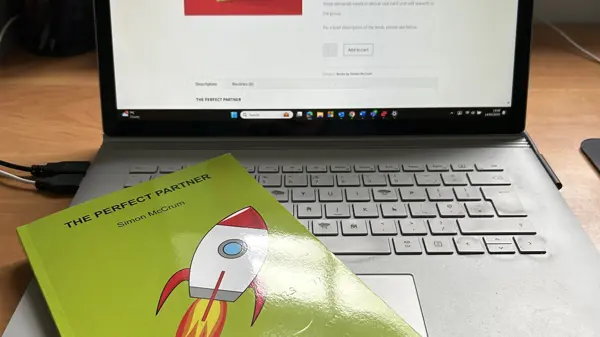Creativity and critiquing The building blocks for a successful collaborative culture (Part 3)
The final part of Chris Marston's look at the powerful elements of collaboration
As we face up to continuing global turmoil and change, all of which is likely to impact our businesses directly in the months ahead, what can we do to improve leadership in this complex world?
As outlined in the earlier introduction to this series of articles, partnerships in the business world can bring new knowledge and audiences, push industry boundaries, as well as solve sticky issues.
And while there may be some resistance among law firms in getting too close to their competitors, being open to finding routes to engage with sector peers and cross-sector connections can have a significant and positive impact on business strength.
We see our SME law firm members use the LawNet network to share solutions, best practice and knowledge, peer-to-peer, whether in person at our learning events, or through online discussion sessions and community forums.
Exciting examples of collaboration across our network, with firms working together on issues ranging from AI to HR, give clear evidence that openness encourages reciprocity.
The cornerstones of such collaboration we have identified are: confidence, communication, creativity and critiquing. In my last article I focused on building confidence and how communication counts; here I am looking at the importance of creativity to drive innovation and the value of critical thinking and being open to feedback.
Creativity
Using collaboration as a force for ideation and innovation can be hugely powerful.
The legendary Wintel Alliance, a collaboration between Microsoft and Intel at the dawn of personal computing led to an affordable computer eventually being found in almost every American home.
Hiren Gandhi of Blaser Mills reflecting on why his firm decided to join LawNet explains:
“What we try to avoid is an echo chamber where our internal management group is just talking to each other, nodding heads and sharing the same ideas. We're always looking to get voices from the outside and get new ideas into the firm.”
One route for that is a forum programme we run specifically for collaboration and learning. This brings together different interest groups, with one for leaders, another for marketing & business development, one for risk management, and so on. Participants hear from expert guests, getting the chance to talk about their challenges, experiences, and ideas, as well as their wider strategic thinking, with each discussion documented and translated into learning outcomes to share among all members. Member Kathryn Paisley leads the corporate and commercial team of Rix & Kay and she explains: “It’s good business practice: having these conversations with others feeds into our own thinking and strategy.”
Participants are exposed to new ideas, but equally can use the forum to validate their own decisions and strategies by listening to how others approach similar challenges and opportunities. As another member said in our annual surveying: “The various forums for discussion are invaluable as regular benchmarking exercises”.
This group approach to innovation can work on a global scale too. Our members are automatically part of the Eurojuris International network, which enables them to share and learn across borders. “For a smaller firm like ours, it means we have opportunities for developing international links without having to be a huge firm with branch offices around the world,” says Claire Charman, a director with Stamp Jackson & Procter in Hull.
The value of cross-border sharing is evident at all levels. Sophie Hearle of Ashtons Legal is a past president of Jurismus, the grouping for young lawyers in Eurojuris International, and she explains
“There are lots of really innovative operational and management strategies being implemented by firms, in areas such as agile working, billing practices and client retention. Being part of Jurismus enables young lawyers to be exposed to this through the events we hold.
“These lawyers are the future leaders of their law firms and enabling their involvement is a worthwhile investment by the law firms as it is going to help spark and generate ideas to keep the firms operating successfully in the long term.”
Critique
Exercising critical thinking and laying your ideas open to critique is another fundamental of collaboration, which enables a more holistic view of the issue at hand, as everybody will share different approaches drawing on their individual experience and areas of expertise.
And while you may feel exposed when sharing ideas or problems, being open to the help of others can make us more agile and step beyond obvious solutions. That sense of agility is essential in this fast-moving world where we may need to pivot without warning. The pandemic is a world-changing example, but since then we have witnessed further significant disruption with the conflict in Ukraine, the cost-of-living crisis and the current economic vulnerability in world markets. Also running alongside are the changes and adaptations being demanded by technology and shifting consumer and business behaviour.
It may take some practice to be open to collaborative innovation and it can help to operate in some form of structure. We found our members valued being exposed to techniques such as Design Thinking which uses observation, insights, and experimentation to drive innovation to create client-focused solutions. This has seen our firms create some interesting outcomes, such as modifying the client journey during the divorce process to alleviate its inherently stressful nature, and thereby improve the overall experience for these clients.
Being open to review by others can lead to greater insights as you are likely to be forced to seek out finer details, which can help in rationalising or communicating ideas within your own firm, as you are compelled to form a stronger argument.
Taken together, these building blocks can create a powerful cultural foundation for collaboration and for those who embrace the approach, there is no going back. It is a transformative style of networking that moves from the transactional to become a strategic lynchpin of the way you do business.
It delivers new ideas and innovation, it creates new relationships and builds goodwill, and it builds profile while building trust. All of which can help enhance reputation, by demonstrating your commitment to working with others to achieve common goals, while gaining access to a wealth of knowledge and resources to help you and your firm succeed.
A longer version of this article was previously published in Solicitors Journal










